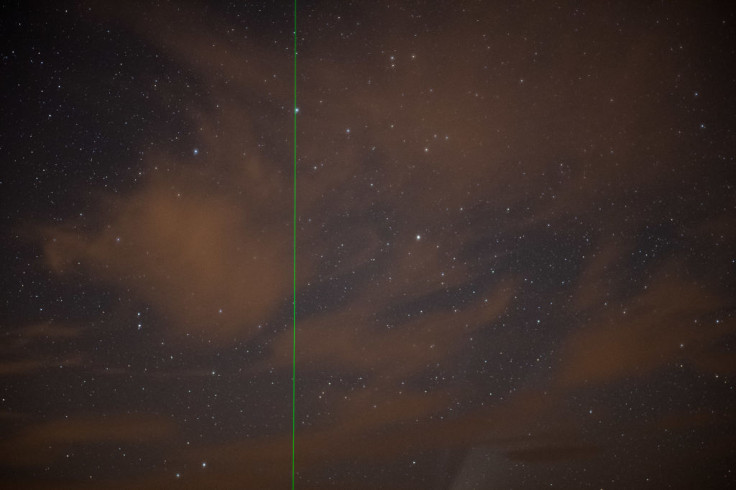
Customs and Border Protection indicated this week that agents have again been targeted by lasers during an operation, forcing them to "take evasive maneuvers."
The agency said that this week's was the sixth such incident in the past four month, all of them taking place when agents were "performing border security operations."
"The most recent event took place approximately 13 miles west of the McAllen International Airport on Feb. 9. While on patrol an AS-350 helicopter was struck three times with a laser that originated from a vehicle on the Mexican riverbank," CBP added.
The agency highlighted that a case that took place in January resulted in the arrest of an individual who pointed a laser at a helicopter in Jacksonville, Florida. The person is now facing felony charges. Shining a laser into a cockpit is a federal crime and those convicted of interference with an aircraft can "face up to 20 years in prison and a $250,000 fine."
While no pilots or crew have been injured as a result of the incidents, CBP explained that "what might seem like a tiny beam on the ground can blind an aircrew, potentially causing a midair collision or other incident."
The FBI had issued a similar warning in December after pilots reported an increase in such incidents, with officials at Joint Base McGuire-Dix-Lakehurst in New Jersey experiencing 15 strikes in 10 days that month. The episodes took place as unidentified aircraft flying over the state made national headlines, with officials raising questions about their nature and the lack of answers from the government. The Trump administration then revealed that drones were authorized for "research" and other purposes, while others were flown by hobbyists.
Border Patrol also announced this week that agents will no longer use body-worn cameras (BWCs) in field operations due to security risks. The decision comes after concerns emerged that the cameras could be tracked and exploited by bad actors, potentially endangering agents and compromising operations.
"All U.S. Border Patrol Agents will cease the use of body-worn cameras (BWC) in all operational environments," reads a statement to Border Patrol agents reported by NewsNation. The statement continues:
"This directive follows notification received by the IDVRS program management office, regarding a potential security risk associated with the BWCs used by USBP. Pending completion of investigation and risk mitigation, all Agents will stand down the use of their BWCs until further notice. Additional guidance and information will be disseminated as it is received"
Reports on social media suggest that the cameras' Bluetooth signals can be detected from up to 100 yards away, making it possible to identify and track Border Patrol and Immigration and Customs Enforcement (ICE) agent. According to Reddit post by user "rowingalt86" under r/immigration, agents could be seen by using BLE Radar, a mobile application that analyzes Bluetooth low-energy devices, including smartphones, smartwatches, and speakers.
NewsNation reports that social media posts even go as far a to claim that body cams can trigger improvised explosive device attacks.
© 2025 Latin Times. All rights reserved. Do not reproduce without permission.





